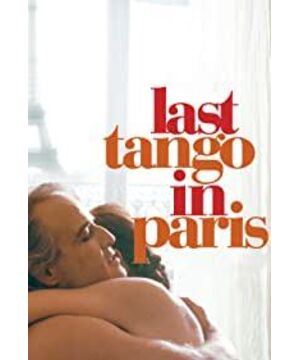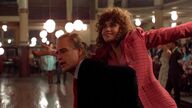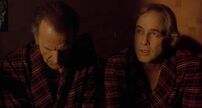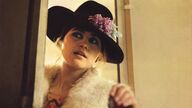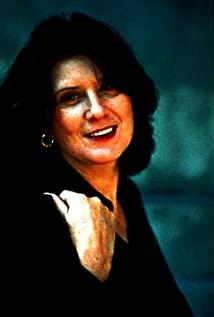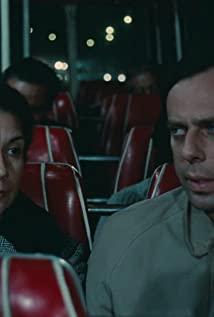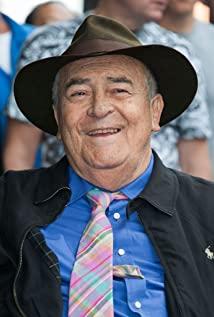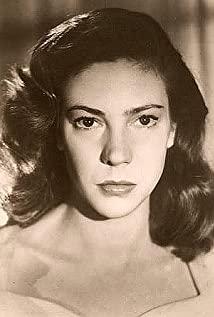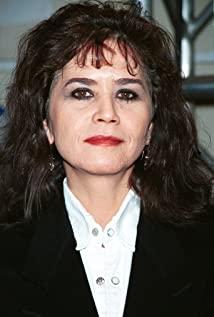Which one does Jane really love? Tang, or the unknown American widower (played by Marlon Brando, hereinafter referred to as horse)? Jane said to the horse: You made me fall in love with him (soup). This is your only strength. When the story was about to end, she finally decided to marry Tang, and wanted to get rid of the horse's entanglement. However, can we judge that she loves Tang based on this?
Please pay attention to a conversation between Jane and Tang.
Jane said: Marriage is popular (POP). Two workers build a house together. If there is adultery, it is just three or four people building a house together; but love is by no means popular (NO POP), love is When a person walks into an empty house alone, love is personal, serious, inexpressible, and difficult to encounter. I can imagine, will the love in Jane's heart be the kind of her same soup?
And does Jane love the horse alone in the empty room? In fact, does the analogy of vacancy come from horses? At the beginning of the story, Jane walked into an empty apartment and met a horse who was drenched in sorrow. At the end, they left the house one after another. When she met the horse again on the road, she was afraid of him who had left the empty room; and when that gunshot, when he staggered out, leaving her alone in her empty room, she still loved him. Are you holding him? Why would she fall in love with him? Maybe he is the empty room she accidentally walked into?
The difference between him and Tang's type of man is not his violent, sinister, wild nature, but his namelessness. Without a name, there is no background, no belonging, no past-it is not that there is no past, but a past that she cannot enter. He is a point without time and space coordinates, and a person with no total social relationship. Will his essence be more pure? The man standing in front of her is just himself, not even himself. The past and the future will no longer exist for him. What kind of state is this! Shocked Jane held a pistol and murmured what she wanted to say to the police: "I don't know him, I don't know his name, I met him on the street, he wanted to rape me, I never knew he was Who..." Every sentence is true, and what's behind the truth? Behind the truth is always hidden the empty room that the third party cannot enter.
Is the distinction between true and false really so important? Is there a clear line between love and not love? And POP and NO POP, sacred and vulgar? Zhen led Tang to see her "forest". The "forest" that gave her childhood and first love infinite memory was actually only a few humble trees. In the weeds under the trees, the children defecated everywhere, and she rushed over to push them. : "How dare you be in my forest?" And all the sacred feelings and all the sentimental memories must have been driven away together.
In fact, this is not a typical feature of the "modern world": the loss of all value standards, judgment standards, cause and effect, everything is inexplicable, and there is no need to explain, there is only one behavior that occurs one after another, and the relationship between behavior and behavior is just " After him" instead of "because of it". (Think of Xio Mo’s denial of causality is a shock to the cornerstone of classical rationalism!) Or we can speculate based on this: If the hole hidden under the floor is in a classic romance movie, it must hide a relationship The secret of the hero and heroine's life experience and fate must be related to the progress of the story, and will inevitably lead to the dramatic conflict in the audience's expectations, leading to the "grand finale." It is a link in an infinite chain of cause and effect, a light bulb in a series circuit. And in this film, the hole under the floor. Regardless of whether Jane opened it or not, it will not make this story have another ending. It just appeared there by accident and exists for no reason. It does not have a baggage waiting to be shaken off, and it has no "content". , The "content" that can be grasped by reason has absolutely nothing to do with the progress of the plot. So what is it? It is a metaphor. Jane accidentally found the hole under the floor. She asked what would be under the horse. When the horse was about to open, she stopped him nervously. She was scared, full of curiosity, and dare not really understand it-why not she in this way! She tried to find out his name, but when he wanted to tell her and ask her name, she snapped the pistol.
This is the only dramatic scene in the film. Yes, now only death is dramatic, because only death changes the state of existence, because "only death, we can't completely vulgarize it." As for love, if it's just walking into an empty house alone, how can it be dramatic? There is no other person's gaze, or even the gaze of others in my own imagination. It is just a purely personal experience and should never contain any performance elements.
Let's take a look at Tang's love for Jane. Love always surrounded by the camera-what a huge industrial eye. Even when quarreling, Tang never forgets to connect the index fingers of both hands with the thumbs, and compares the view frame to see Jane. He no longer uses his own eyes. He always feels the eyes of others. He is using the eyes of others. Consider the visual effects of your love. Jane pushed him away on the platform and said: Love under the camera is "playing"! (The drama made?) Love cannot be dramatic. However, isn't the standard of "doing and not doing" as ambiguous as the standard of "loving and not loving"? Husband and lover wear the same bathrobe and talk about whether the dead woman loves or does not love? Jane said that she could stay and do everything for the horse, and leave in panic because she couldn't bear a dead mouse before she finished her words. Is it love or acting? If love cannot be dramatic, what does the only dramatic death leave behind? Ma did not even have time to leave a name, his death will be interpreted as a criminal case, the legitimate defense of the mob, completely deviated from the original and completely true interpretation of things. Ironically, the last connection between the horse and the world is not Jane, not love, but just a piece of chewed gum! After being shot, he staggered to the balcony, while overlooking the city, he took it from his mouth and glued it to the balcony railing, (who knows what he was thinking at that moment?) It will stay there for a long time. He stayed there for a long time after his body was taken away and wiped out. What an absurd world this is, his chewing gum that will never be looked at on her balcony!
On the way to her apartment, they broke into a pas de deux venue, a pair of men and women wearing exaggerated gowns, wearing a uniform number, and stepping on elegant and appropriate dance steps. Ma led Jane to join them, the staff pushed them away, and Ma danced wild tango while protesting: We are love! The fat old lady reprimanded him like Roland Bart: "Love? Find it in the movie!"
Is love really out of date? Perhaps this is not true. It is not love itself that is outdated, but the dramas attached to love; it is not love itself that makes people feel ashamed, but the sentimental Titanic love.
View more about Last Tango in Paris reviews


